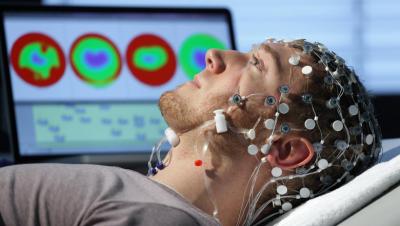

by Anna Hunt, Awareness Junkie
New scientific research shows that lack of sleep may be more damaging to the brain than we’ve previously thought.
It’s well known that the brain gets a makeover every time you sleep. During sleep, support cells in the brain clear away residue left over from the day.
Now, new research shows that these support cells go into overdrive when you are not getting enough sleep. They clear away more than unneeded residue. They actually start to harm the brain.
Michele Bellesi, leader of the research team, told New Scientist:
We show for the first time that portions of synapses are literally eaten by astrocytes because of sleep loss.
Astrocytes are support cell in the brain that clear out unnecessary connections between neurons. This process is called phagocytosis, which means “to devour” in Greek.
The Brain’s Clean-up Process
It is absolutely normal for the brain’s support cells, called glial cells, to clean up the brain during sleep. They clear out old and worn out neurons. They also clean up old and unnecessary synapses, or connections, between neurons.
One would think that lack of sleep would prevent the brain from performing this necessary housekeeping function. Yet, researchers uncovered a completely different consequence.
Effects of Lack of Sleep
A group of neuroscientists out of the Marche Polytechnic University in Italy discovered that the mammalian brain performs the same clean-up functions during persistent poor sleep as it does during sleep. The scientists found the similarity when comparing the brain’s response in well-rested and sleepless mice. They found that the brains of sleepless mice were clearing away a substantial number of neurons and synaptic connections.
The study’s conclusion stated:
Like many other stressors, extended sleep disruption may lead to a state of sustained microglia activation, perhaps increasing the brain’s susceptibility to other forms of damage. (source)
Bellesi and her team published their research in the Journal of Neuroscience.
Long-term Implications
What these researchers are getting at is that chronic sleep loss may predispose the brain to further harm or injury. This may include certain ailments during old age, such as dementia and Alzheimer’s. On a smaller scale, this might explain phenomena like baby brain, or just the inability to remember things when you are sleep deprived.
Regardless of the long-term implications, this study is good motivation to get your six to eight hours of sleep each night.
This article (Neuroscience Shows the Brain Literally Eats Itself Due to Lack of Sleep) is copyrighted by Awareness Junkie, 2017. Furthermore, you may not copy, reproduce, publish or distribute any content therein without written permission. You may contact us here.
Disclaimer: This article is not intended to provide medical advice, diagnosis or treatment. Moreover, views expressed here do not necessarily reflect those of Awareness Junkie or its staff.
http://www.awarenessjunkie.com/neuroscience-shows-brain-literally-eats-due-lack-sleep/

